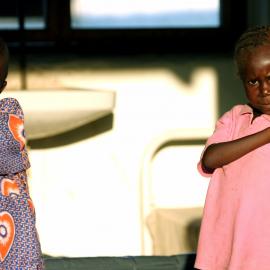To the Editor:
My colleague Gail Gerhart criticizes Edgar O'Ballance's book The Congo-Zaire Experience for its "odd omission of the long-confirmed responsibility of the CIA for the 1961 murder of Patrice Lumumba" ("Recent Books," September/October 2000). Whatever this allegation is, it is not "long-confirmed."
The Church Committee concluded 25 years ago that "in the fall of 1960, two CIA officials were asked by superiors to assassinate Lumumba. Poisons were sent to the Congo and some exploratory steps were taken toward gaining access to Lumumba." But the assassination was not attempted. The Church Committee goes on: "Subsequently, in early 1961, Lumumba was killed by Congolese rivals. It does not appear from the evidence that the United States was in any way involved in the killing." No new evidence has been published in the last quarter-century to contradict this finding.
Lumumba was the Congo's first prime minister. He was struggling with his tribal allies against the president, Joseph Kasavubu. He was also, with Soviet political support, opposing the U.N. force that had been dispatched to help stabilize this failing state. Lumumba was arrested by government forces in December 1960. Against a backdrop of controversy over this arrest, and fearing they could not keep him in custody for long with their fractious military, government leaders instead delivered Lumumba into the hands of Katanga, a rebel government in southern Congo. The Katangan leaders killed Lumumba and two of his aides.
To be fair to Gerhart, the story has its nuances. Though not involved in the scheme, the CIA station chief had learned a few days earlier of a Congolese government plan to send Lumumba to another of his many enemies (not the Katangans). The station chief and his superiors in Washington did nothing with the information. They perceived no obligation to help Lumumba and had little capacity to interfere.
Philip Zelikow
Professor of History and Director of the Miller Center of Public Affairs, University of Virginia, and reviewer of books on the United States for Foreign Affairs.
